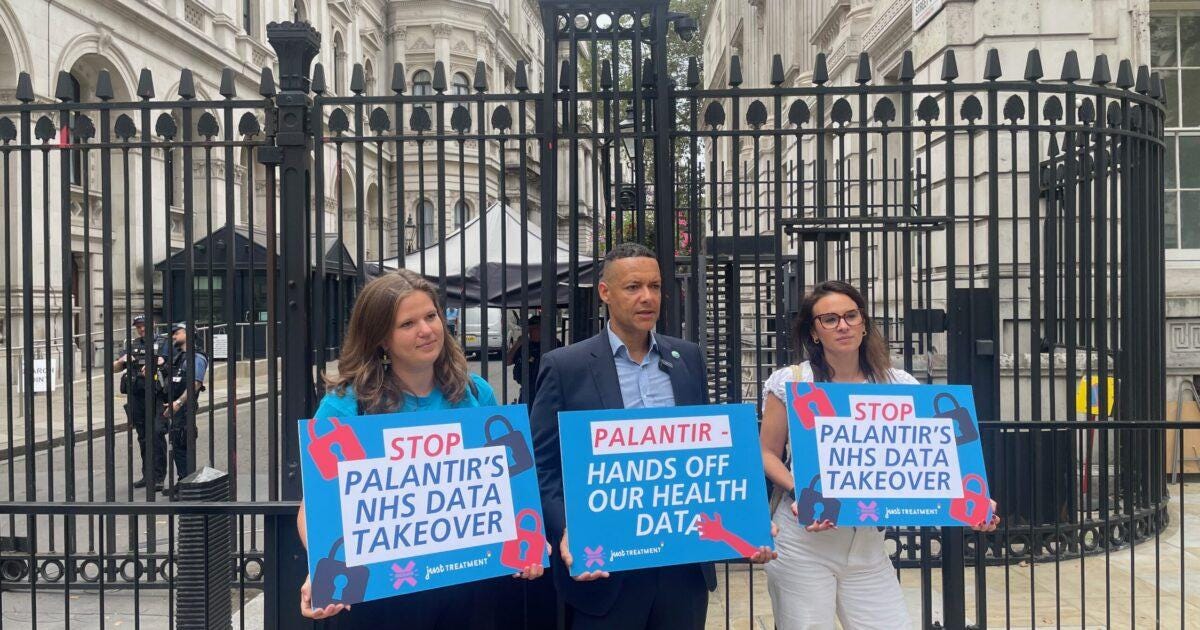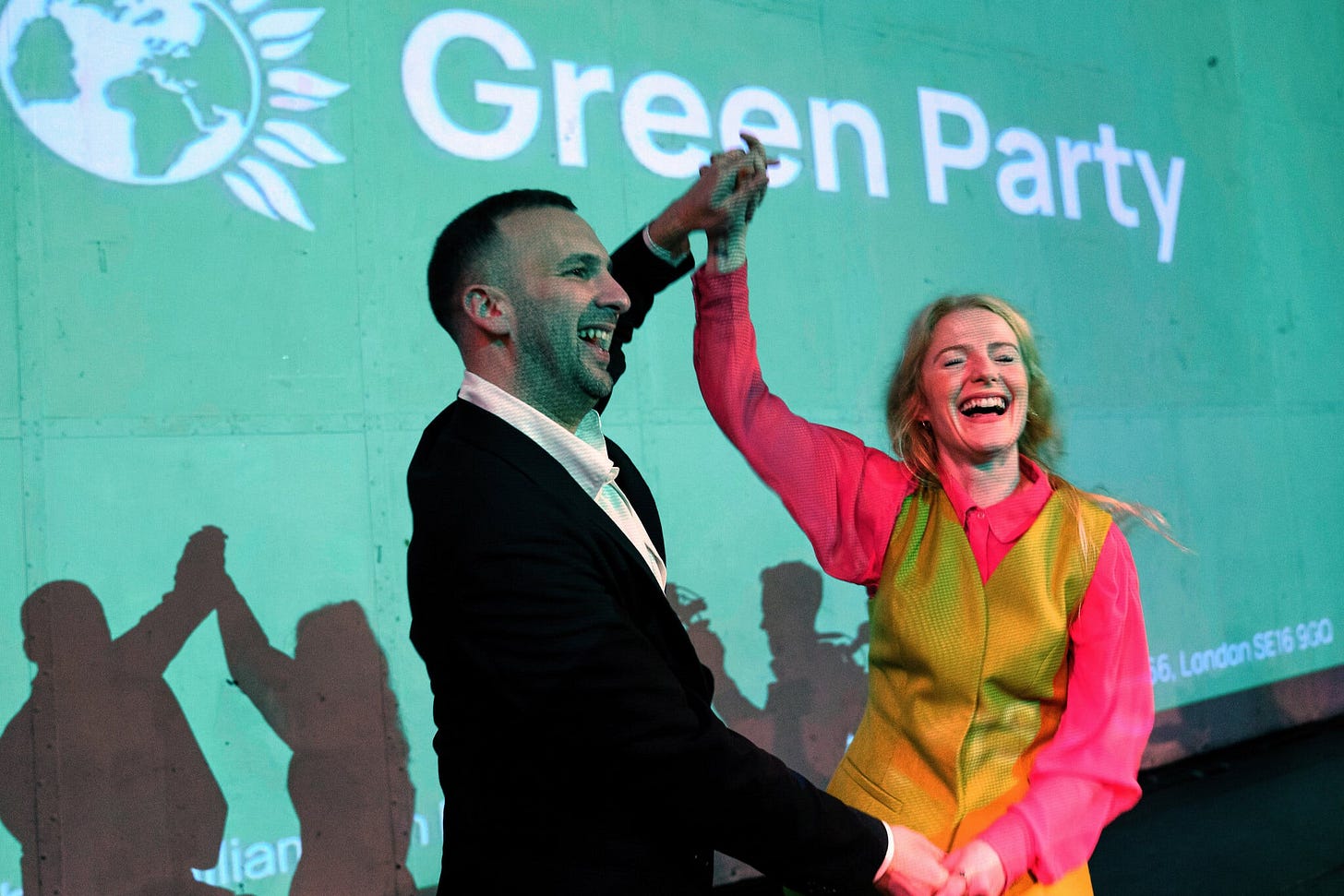“Show me the incentive and I’ll show you the outcome” said Charlie Munger. In politics, we can reverse this. We’ve seen the outcome, so what are the incentives?
The outcome, we know, is bad. Recent Prime Ministers have seen near-record levels of unpopularity. And no wonder, because they have failed even on their own terms: Cameron wanted to keep us in the EU but failed; May wanted a Brexit deal but failed; Johnson wanted to remain PM but failed; Truss wanted a tax-cutting Budget but failed; and Sunak wanted to save the Tory party but failed.
Bad outcomes suggest bad incentives. And these are bad for almost all actors in politics.
Let’s start with voters. These have no incentive to learn about politics because of the well=known problem of collective action. For any individual the cost of learning - time that could be spent on other things - is high whilst the benefits of doing so are negligible: the chances that your vote will be decisive are minuscule. This makes voting very different from other areas of life. If I under-estimate the dangers of smoking or the benefits of healthy eating I can ruin my life. But if I misunderstand social facts and so vote the wrong way, I as an individual do not suffer because my vote wasn’t decisive.
The outcome is what you’d expect from this incentive: very many voters are woefully ill-informed, as Ipsos’ polling has shown for years.
Over 20% of them think that either overseas aid, asylum seekers or MPs expenses are among the three things that government spends most on, when in fact these are tiny shares of spending. Only one in six voters were within an order of magnitude of estimating the overall size of public spending. And the median voter overestimates how much is spent on debt interest and under-estimates how much on pensions.
It wouldn’t matter so much if individuals’ errors cancel out. But they don’t. In the run-up to the Brexit referendum Ipsos found that:
We massively overestimate how many EU-born people now live in the UK...we overestimate how much we pay compared with other countries...we massively overestimate the proportion of Child Benefit awards given to families in other European countries...we massively overestimate how much of the EU’s budget is spent on administration.
These systematic errors act as a form of pollution - they impose costs onto others. As Bryan Caplan has written:
If one person pollutes the air, we barely notice; but if millions of people pollute the air, life can be very unpleasant indeed. Similarly, if one person holds irrational views about immigration, we barely notice; but if millions of people share these irrational views, socially harmful policies prevail by popular demand.
Bad incentives don’t just produce ignorant voters but also irrational ones. Jason Brennan writes:
Voters are not merely ignorant or misinformed but also epistemically irrational. The field of political psychology finds that most voters suffer deeply from a wide range of cognitive biases...These biases include motivated reasoning, intergroup bias, confirmation bias, and availability bias, among others. In general, voters tend to form political beliefs on the basis of little to no evidence, and then stick to those political beliefs no matter what new evidence they encounter. (When All Else Fails, p165)
I stress here that the problem isn’t that people are simply stupid: countless people who are irrational or ignorant at the polling station are quite clever in other contexts. The problem is that they are incentivized to be stupid. They re rationally ignorant and rationally irrational because the costs to any individual of correcting their errors exceed the benefits.
Nor, of course, does the media have any incentive to help voters correct their errors. Quite the opposite. For newspapers, the incentive is that for any declining industry - to hold onto existing customers. And these are increasingly disproportionately older right-wing people who can afford to live in a bubble of illusion. The upshot is that the papers pander to their prejudices rather than try to correct them. Hence columnists like Allister Heath or Daniel Hannen staying in work despite being consistently demonstrably provably wrong.
Nor is the BBC a counterweight to these, because its incentives are to pander to the right in an attempt to keep it quiet. Lewis Goodall says of it:
The tendency to move right is always stronger than left, because there is terror of the right in a way the BBC does not possess of liberalism or the left.
And so the right sets the BBC’s agenda. It spends more time reporting on migrants arriving in small boats than it does on, say, the wage stagnation of the last 20 years; echoes Tory party tropes; and has for years given Reform and Tufton Street junktanks more airtime than their parliamentary presence or intellectual heft warrants.
Not just that. It fails to provide factual corrections to Reform’s wrong statements about immigration, with the result that impartiality becomes indifference between truth and lies.
What’s more, says Tom Mills the BBC - being incentivized to not antagonize powerful people - “overwhelmingly defers to official politics, taking its cue from Westminster and the broader world of elite policy making, and to a lesser extent business representatives.” That leads to a bias against emergence, and hence against an understanding of society and the economy.
Nor do politicians have incentives to be good at governing. Osborne and Clegg have earned far more since leaving politics than they did in government. The financial incentives, therefore, are not for politicians to govern well: these two men did much to ruin the economy and public services. They are instead for ministers to promote, or at least not threaten, the interests of financiers and techbros.
Osborne and Clegg’s successors are behaving as if they’ve learned this lesson. In chasing non-existent Labour-Reform switchers to the neglect of its actual voters, the Labour right is behaving as if its incentives are not to win the next election but to get cushy jobs outside politics after it.
The MoD’s and NHS’s contracts with Palantir and the NHS’s “digital transformation” programme might well be motivated more by ministers’ wanting corporate handouts and tech jobs after leaving government than by a genuine concern to raise public sector efficiency: Streeting’s majority in Ilford North is a mere 528, so it’s only natural that he should think about his career prospects for his late 40s.
You might object that such contracting out will improve the public services. I’ve no strong view on this: transactions cost economics is all about detail and context. Even if this is true, though, there’s another problem of bad incentives: that good policy is sometimes worse for politicians than bad policy, even in narrow electoral terms.
Farage is an example of this. He remains one of our most influential politicians even though the principal policy he advocated for years has been a proven failure.
Those Brexiters who claimed that Brexit would allow us to better control immigration have also been proven wrong: net immigration rose sharply after leaving the EU. But this actually worked in their favour. It helped keep the immigration issue high on the media agenda, thereby serving right-wing purposes.
Failure works.
The converse is also true: success fails.
Of course, the evidence base for this is small given the paucity of sucessful policies in recent years. But one striking example is that the 1997-2010 Labour government greatly reduced pensioner poverty; the number on incomes less than 60% of the median after housing costs, for example, dropped by a million. Did this success turn pensioners into Labour voters? No, quite the opposite. They now feel no need to vote for parties that will protect the poor.
What’s going on here is partly what happens in any industry. Doing a good job is merely a basis for negotiating a possible reward, not a guarantee of getting one.
Also, these are examples of Gilles Saint-Paul’s theory of political entrenchment. Parties that successfully remove the problems of their client group, he says, also remove the reason for that group to vote for them. And so they have an incentive to not solve the problem. He gives the example of leftist parties failing to greatly raise the incomes of the poor, but I suspect the point broadens.
To see more bad incentives, consider why HS2 proved so expensive. The FT reports that, unlike in Japan where such projects are managed by a public body with technical skills, in the UK they were overseen by “government officials without technical expertise” and that contracts were awarded on a cost-plus basis, giving contractors little incentive to hold down costs.
One problem here is that civil servants are under-incentivized. “Too many people in Whitehall are comfortable in the tepid bath of managed decline” Sir Keir Starmer has said. Civil servants don’t suffer much if public projects go way over budget or gain much if they don’t. (One reason we don’t have such high-powered incentives is that if we did the idiot press would scream about “fat cat mandarins” every time something in government went well.)
Another problem is that, despite the slump in newspaper circulation, politicians still feel incentivized to chase good headlines, prioritizing short-term attention over longer-term concrete achievements. In his excellent Failed State, Sam Freedman writes:
Nothing came up more regularly in the interviews for this book than the impossibility of making good policy in a world where media management is the over-riding priority of government (p231.)
He gives the example of penal policy: tougher sentences is a good headline, but building prisons is a long-term slog that gets neglected. The same applies to infrastructure spending. New hospitals or railway lines are headlines, but getting them built on time and budget is a hard grind, and nobody is incentivized to undertake it.
There is an objection to all this. Incentives aren’t everything. People have intrinsic motives too. Politicians’ talk of public service is not always mindless cant. This isn’t a guarantee of sensible or even humane policy: more people have been killed by men who loved their country than by those who wanted to make a few bob. But it is a counterweight to economists’ conceit that incentives are everything.
But is it a strong enough counterweight?
No, and politicians themselves think not. If we could rely 100% on public spiritedness we would not need laws. But politicians make them, and rightly so because not everyone is public-spirited and in a good society incentives reinforce our better natures.
Our problem is that, in politics, incentives do not do this - in fact, quite the opposite.

